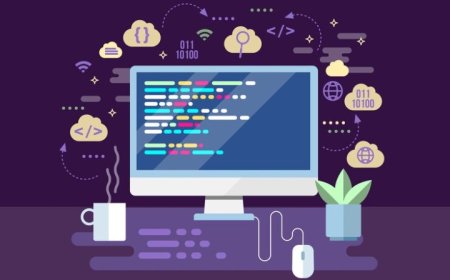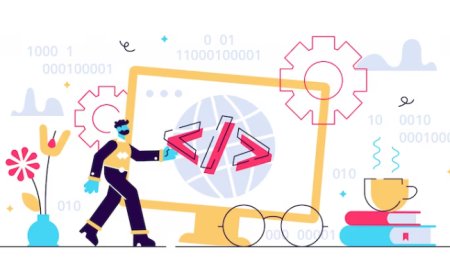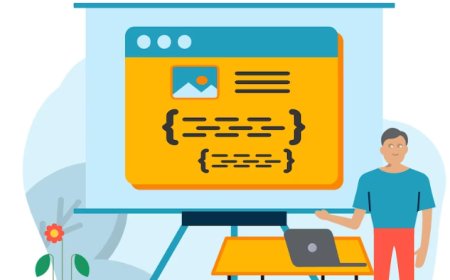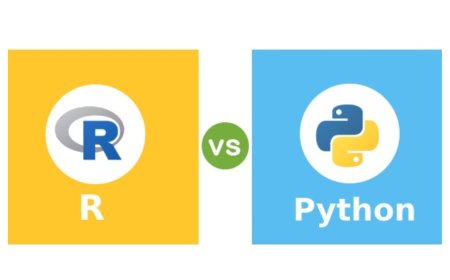Python stands out as a programming language for its simplicity and power, making it a preferred choice for both budding programmers and seasoned professionals. At its core, Python's syntax is intuitive, enabling beginners to quickly grasp basic programming concepts. This accessibility is a significant factor in its widespread adoption across industries, from small startups to large enterprise-level companies. The language's design emphasizes readability, meaning that Python code often reads almost like English, which reduces the time required to understand and maintain complex codebases.
For startups, this can mean faster development times and the ability to prototype ideas quickly. For larger companies, Python's robustness and scalability support the handling of vast amounts of data and complex operations, making it a versatile tool in the tech arsenal. Its broad applicability across different fields, including web development, data analysis, artificial intelligence, and more, further Python's role as a fundamental skill in the technology sector. Whether you're just starting your tech journey or looking to enhance your coding toolkit, Python offers a welcoming and productive environment to learn, innovate, and grow professionally.
Core Python Skills for Career Advancement
When considering a career in Python, understanding the foundational skills is crucial. Python's appeal partly lies in its straightforward syntax, making it accessible for beginners yet powerful enough for experts. At the heart of career advancement with Python are several core competencies that professionals should master.
First, a solid grasp of Python's basic syntax and command-line operations is essential. This includes understanding how to declare variables, use data types, and manage control flow with loops and conditional statements. These are the building blocks of any Python program and serve as the starting point for more complex projects.
Next, knowledge of Python's built-in data structures like lists, dictionaries, sets, and tuples is vital. Efficient data manipulation and storage are fundamental in programming, and Python offers a rich set of tools to handle these tasks effectively.
Functions and modules are another critical area. Being able to write reusable code blocks (functions) and organize your code effectively across different files (modules) not only makes your code more readable but also more maintainable.
Error handling with try-except blocks is a skill that cannot be overlooked. Real-world applications often encounter unexpected situations, and handling these gracefully is a hallmark of a proficient Python programmer.
Finally, an understanding of object-oriented programming (OOP) concepts in Python is crucial. Python is designed with OOP in mind, and mastering this paradigm allows for creating more flexible, scalable, and interconnected systems.
Specializations within Python
Python is a versatile programming language that accommodates various specializations catering to different sectors of technology and development. Below are several key areas within Python where professionals often specialize, along with brief pointers to each.
1. Web Development
- Frameworks: Django, Flask, Pyramid.
- Skills: Handling HTTP requests, template rendering, form processing, and database manipulation.
- Objective: Develop web applications ranging from simple web pages to complex web services.
2. Data Science and Analytics
- Libraries: pandas, NumPy, Matplotlib, Seaborn.
- Skills: Data manipulation, statistical analysis, data visualization.
- Objective: Analyze and interpret complex datasets to extract meaningful insights.
3. Machine Learning and Artificial Intelligence
- Libraries: scikit-learn, TensorFlow, PyTorch.
- Skills: Model development, neural networks, natural language processing.
- Objective: Create algorithms that can learn from and make predictions or decisions based on data.
4. Automation and Scripting
- Applications: Automated tasks, data scraping, network administration.
- Skills: Script writing, task automation, web scraping.
- Objective: Simplify and automate repetitive tasks to improve efficiency.
5. Scientific and Numeric Computing
- Libraries: SciPy, NumPy.
- Skills: Mathematical modeling, simulation, numerical analysis.
- Objective: Solve scientific and mathematical problems through computational methods.
6. Cybersecurity and Ethical Hacking
- Tools: Python libraries like scapy, requests, BeautifulSoup.
- Skills: Vulnerability analysis, penetration testing, network security.
- Objective: Protect systems and networks by identifying and resolving security vulnerabilities.
7. Game Development
- Libraries: Pygame, Panda3D.
- Skills: Game logic, physics, graphics programming.
- Objective: Develop games or game prototypes, ranging from simple 2D puzzles to more complex 3D environments.
- Libraries: Tkinter, PyQt, wxPython.
- Skills: User interface design, event-driven programming.
- Objective: Create user-friendly desktop applications.
9. Network Programming
- Libraries: socket, asyncio.
- Skills: Building network applications, asynchronous programming.
- Objective: Develop applications that communicate over the internet or other networks.
10. DevOps and System Administration
- Tools: Ansible, Docker.
- Skills: Server automation, containerization, configuration management.
- Objective: Automate and manage system configurations, ensuring the smooth deployment and operation of software.
Each specialization requires a foundation n Python programming, upon which specific libraries and tools are leveraged to achieve specialized tasks. Depending on your interests and career objectives, you might find one or more of these areas particularly appealing for deep diving.
| Specialization | Significance in Emerging Technologies | Primary Technologies/Fields |
| Machine Learning | Python's simplicity and robust library ecosystem make it ideal for developing and implementing machine learning algorithms. | TensorFlow, PyTorch, Scikit-learn |
| Artificial Intelligence | Facilitates the creation of advanced AI models, including natural language processing and computer vision, due to its versatility. | NLP (Natural Language Processing), OpenCV |
| Data Science | Offers powerful data manipulation, analysis, and visualization tools, essential for extracting insights from large data sets. | Pandas, NumPy, Matplotlib, Seaborn |
| Web Development | Python's frameworks simplify and expedite the development of secure and scalable web applications. | Django, Flask |
| Internet of Things (IoT) | Python's readability and support for microcontrollers and sensors make it a preferred choice for developing IoT applications. | Raspberry Pi, MicroPython |
| Blockchain | Used for developing blockchain applications due to its security features and simplicity. | Ethereum Smart Contracts, Hyperledger |
| Cybersecurity | Python’s libraries and tools are extensively used in developing cybersecurity solutions, including penetration testing tools. | Scapy, PyCrypto |
| Cloud Computing | Essential in automating and managing cloud infrastructure, supporting various cloud service models. | AWS SDK (Boto3), Google Cloud Platform (GCP) |
| Robotics | Python’s adaptability and the presence of robotic-specific libraries facilitate robotics programming and simulation. | ROS (Robot Operating System), PyRobot |
| Deep Learning | Enables the creation of deep learning models for tasks like image and speech recognition with high-level abstraction libraries. | TensorFlow, Keras |
Building a portfolio with Python projects
Building a portfolio with Python projects is an excellent way to showcase your skills, understand practical applications, and stand out in the job market or in academic endeavors. Here's a step-by-step guide tailored for both showcasing your skills in a variety of Python specializations and ensuring your projects align with modern, suave, and innovative content delivery methods.
1. Define Your Goals
- Identify Specializations: Decide on the Python specializations you want to focus on (e.g., web development, data science, machine learning).
- Target Audience: Consider who your portfolio is for (potential employers, clients, academic admissions).
2. Project Selection
- Diversity: Include projects from different areas to showcase versatility.
- Complexity: Have a mix of projects from simple scripts to more complex applications.
- Relevance: Choose projects relevant to current trends and technologies in your chosen specializations.
3. Project Development
- Planning: For each project, outline the goals, required technologies, and what problem it solves.
- Development: Follow best practices in coding and project organization. Use version control with Git and host your code on platforms like GitHub.
- Documentation: Write clear, concise README files for each project, outlining the purpose, technologies used, and how to run them.
4. Incorporate Advanced Features
- Use APIs: Integrate external APIs to demonstrate your ability to work with third-party services.
- Implement AI: For projects in areas like data science or web development, integrating AI features can add significant value.
- Responsive Design: If applicable, ensure web projects are responsive and accessible.
5. Showcase Your Work
- Build a Portfolio Website: Develop a clean, professional website using Python (e.g., Flask, Django) to present your projects.
- Blog Posts: Write articles for each project, discussing the challenges faced, how you overcame them, and the project's impact. This is also great for SEO.
- Infographics: Create infographics summarizing your projects or illustrating the problems they solve. Use tools like Adobe Spark or Canva.
6. Share and Network
- Professional Networks: Share your portfolio on LinkedIn, Twitter, and within Python communities (e.g., Reddit's r/Python).
- Feedback: Seek feedback from peers and mentors to improve your projects and portfolio presentation.
- Continuous Learning: Stay updated with Python developments and continually work on new projects to add to your portfolio.
7. Prepare for Discussion
- Understand Your Projects: Be ready to discuss your projects in detail, including decisions made during development and the results.
- Problem-Solving: Be prepared to explain your problem-solving approaches and how you dealt with obstacles.
8. Optimization for Visibility
- SEO: Optimize your portfolio website and blog posts for search engines to increase visibility.
- Analytics: Use tools like Google Analytics to monitor your portfolio's performance and understand your audience better.
Creating a diverse and comprehensive portfolio with Python projects is an ongoing process that requires planning, execution, and communication. By following these steps, you can build a portfolio that not only showcases your technical skills but also your problem-solving abilities and creativity, making you a more attractive candidate for opportunities in your chosen fields.
Python Job Market
Python job market effectively demands a strategic approach, highlighting both technical prowess and industry-relevant soft skills. Given Python's widespread application across various domains such as web development, data science, machine learning, and automation, candidates should first identify their area of interest and expertise. Building a robust portfolio showcasing diverse Python projects, as discussed, is crucial for standing out. Networking plays a significant role; engaging with the Python community through forums, social media, and attending conferences can open doors to opportunities. Additionally, staying updated with the latest Python developments and complementary technologies is key to aligning with market demands. Tailoring your resume and cover letter to highlight your Python skills, project experiences, and their impact on real-world problems can significantly enhance your job prospects. Employers value candidates who demonstrate a continuous learning attitude, problem-solving skills, and the ability to work collaboratively in diverse teams, making these soft skills essential to emphasize alongside your technical capabilities.
Future Prospects of Python Professionals
Continued Growth in Data Science and Machine Learning: Python's dominance in data science and machine learning is expected to continue, driven by its simplicity and the extensive ecosystem of libraries and frameworks like Pandas, NumPy, TensorFlow, and PyTorch.
Expanding Opportunities in Web Development: With frameworks such as Django and Flask, Python professionals can leverage opportunities in building secure, scalable web applications. The demand for full-stack developers proficient in Python is on the rise.
Rising Demand in Automation and Scripting: Python's efficiency in automation, data manipulation, and scripting tasks makes it valuable for improving productivity and workflows, leading to more opportunities in software development and IT operations.
Growth in IoT, Robotics, and Embedded Systems: Python’s role in developing applications for IoT devices, robotics, and embedded systems is expanding, thanks to its readability and support for microcontroller-based applications.
Blockchain and Fintech Innovations: As the fintech sector grows and blockchain technology evolves, Python professionals with expertise in these areas are increasingly sought after for developing secure, transparent, and efficient solutions.
Cybersecurity and Network Security: Python's application in cybersecurity, through development of tools for penetration testing, vulnerability analysis, and security automation, presents growing career opportunities.
Cloud Computing and DevOps: With cloud platforms offering Python SDKs and the language's use in serverless computing, automation scripts, and APIs, Python professionals are essential in cloud infrastructure management and DevOps practices.
Artificial Intelligence and Deep Learning: Python’s role in AI and deep learning projects is significant, with its application in developing sophisticated models for natural language processing, computer vision, and predictive analytics.
Educational Sector and Research: Python’s simplicity makes it a preferred language for teaching programming concepts, computational thinking, and for use in academic research, opening paths in education and research roles.
Cross-Domain Flexibility: Python professionals can easily transition across different sectors like finance, healthcare, retail, and more due to the language's application in analytics, data visualization, and process automation.
Community and Open Source Contribution: Active participation in Python's vibrant community and open-source projects can lead to recognition, career development opportunities, and positions at leading tech companies.
Python's prominence across various emerging technologies, from data science and machine learning to web development and cybersecurity, underscores its adaptability and the broad spectrum of opportunities it presents for professionals. The versatility of Python enables practitioners to engage in a diverse range of projects, showcasing their skills through a well-crafted portfolio. With the continued growth in technology sectors relying on Python, the prospects for Python professionals look exceptionally bright. Whether you're just beginning your journey in programming or seeking to expand your expertise, Python offers a robust platform for development, innovation, and career advancement. Embrace the learning curve, contribute to the community, and explore the endless possibilities that Python and its applications offer for shaping the future of technology.













































